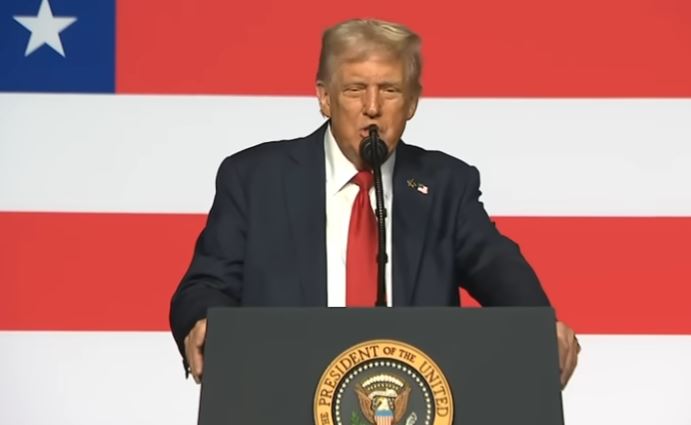Donald Trump’s remarks about his prospects in the afterlife went viral after he told reporters aboard Air Force One that he doubts anything he has done, including brokering the latest Gaza ceasefire and hostage-release deal, will get him into heaven. “I don’t think there’s anything going to get me in heaven, okay? I really don’t. I think I’m not maybe heaven-bound,” he said in an on-camera exchange while flying to Israel, adding moments later, “I may be in heaven right now as we fly in Air Force One. I’m not sure I’m going to be able to make heaven.” Asked whether the ceasefire might improve his chances with St Peter, he answered with a shrug that blended gallows humor and self-deprecation. The clip circulated widely across broadcast and social platforms within hours of its release, amplified by outlets that framed it as the president conceding he may not be “heaven-bound.”
The comments came as Trump promoted what he has called a 20-point peace plan to end the war in Gaza, which his administration says secured the release of all surviving Israeli hostages in exchange for a large prisoner release by Israel and a verified halt in fighting. In the airborne gaggle, he declared the “war is over” and said he hoped the truce would hold; minutes later, he pivoted to the quip about heaven that would eclipse his policy message online. The juxtaposition—sweeping claims about a foreign-policy breakthrough paired with fatalistic talk about salvation—helped propel the clip beyond the usual political audience and into broader popular feeds.
Trump has raised the subject repeatedly in recent weeks, speculating in interviews and impromptu remarks about whether monumental achievements could help “get to heaven.” In August, he told Fox & Friends: “I want to try and get to heaven, if possible. I’m hearing that I’m not doing well. I am really at the bottom of the totem pole. But if I can get to heaven, this will be one of the reasons,” a line that resurfaced in coverage after his latest airborne comments. The motif has recurred often enough that religious commentators and political analysts alike have begun treating it as a deliberate riff, a mash-up of personal musing and base-motivating rhetoric.
His formulation about moral calculus has also been stark. In a separate exchange last week, Trump said there is “no reason to be good” apart from proving to God that one is worthy of “that next step,” remarks that drew sharp reaction from clergy and lay commentators who said Christian doctrine holds that salvation is not earned by deeds. The framing—goodness justified chiefly as a ticket to heaven—fed an online debate about whether the president’s language reflected transactional thinking at odds with orthodox teaching on grace.
